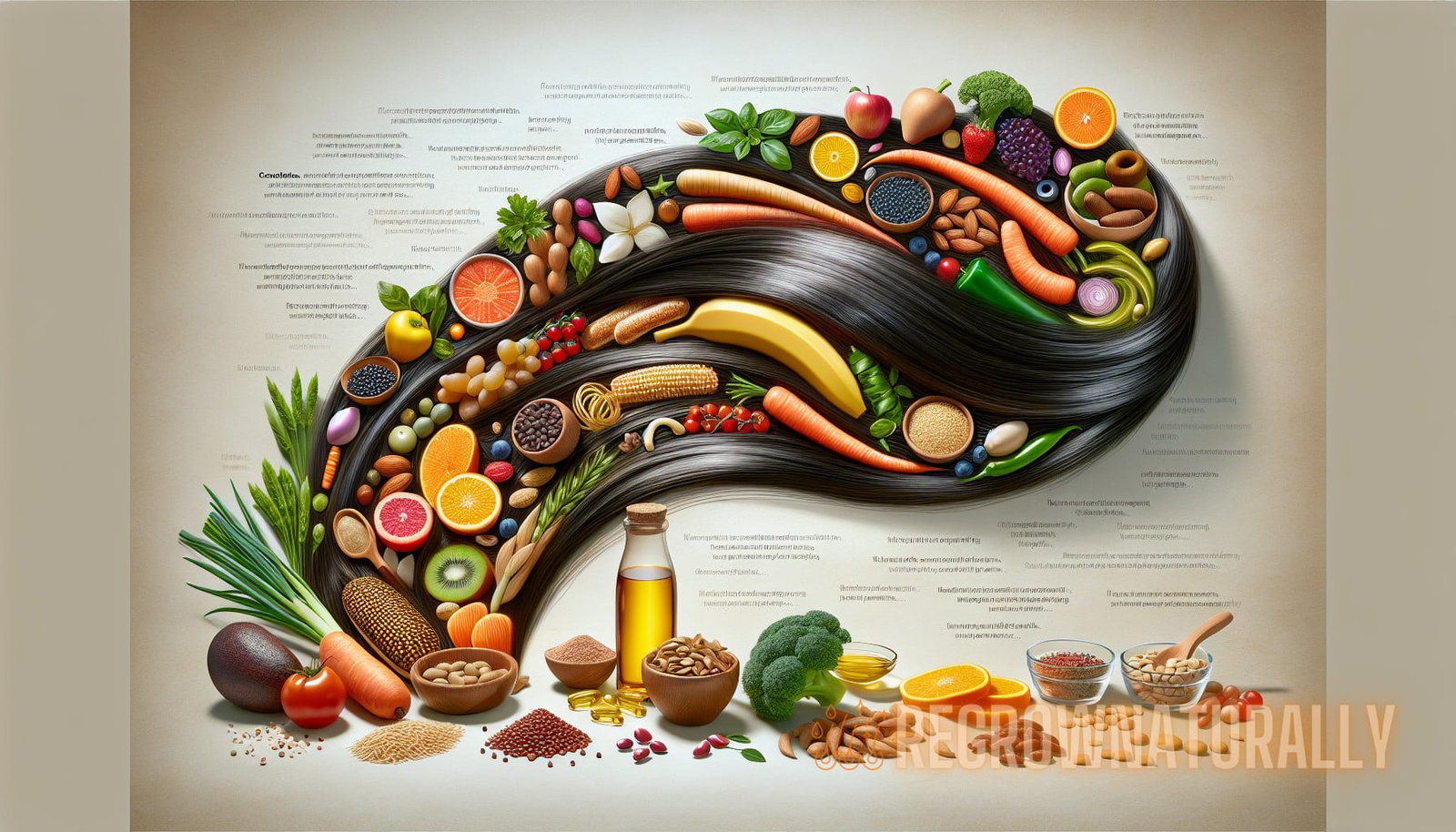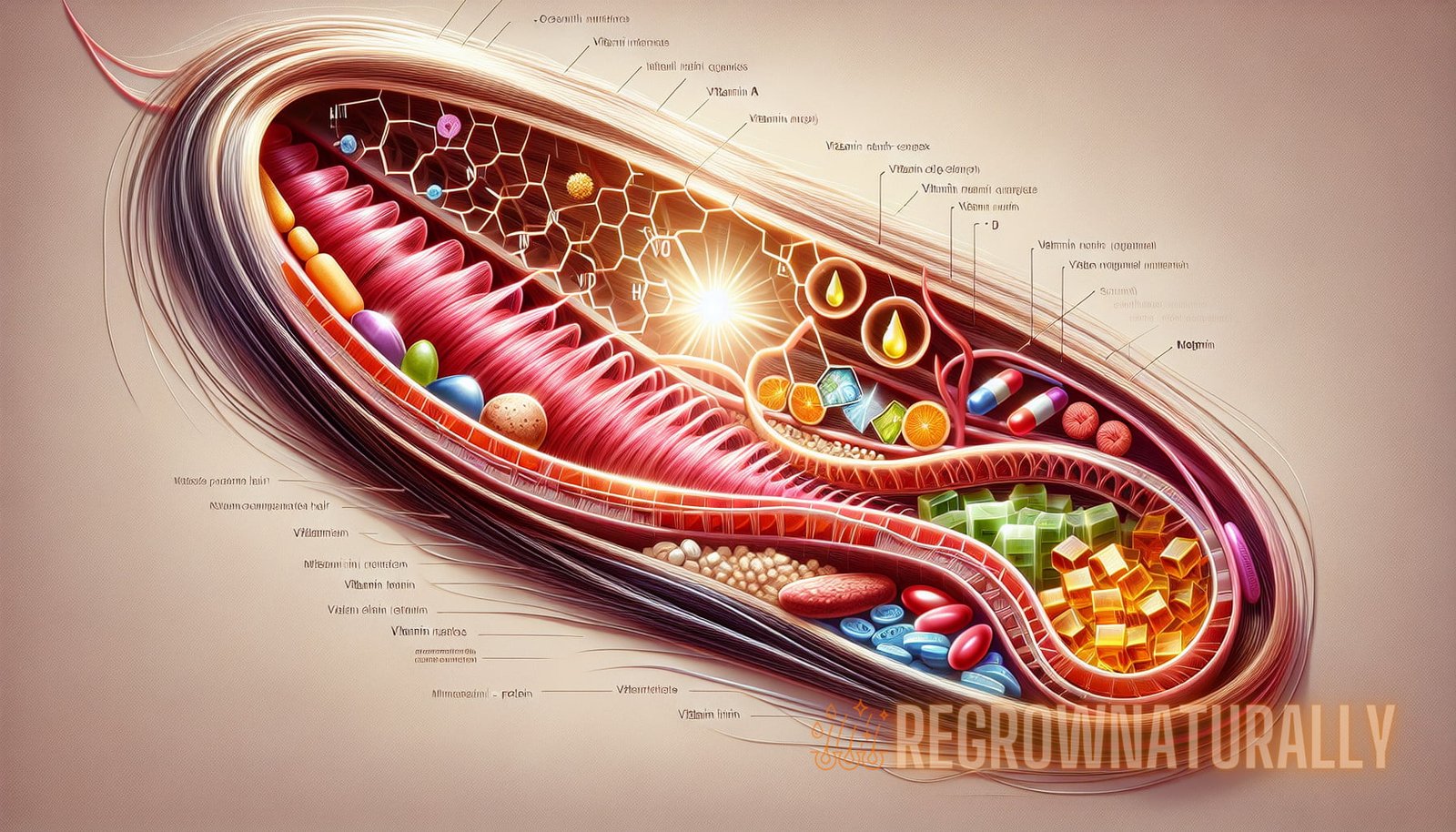Hair health is a topic that has been the subject of much discussion and research over the years. From hair loss to hair growth, many factors can affect the overall health and appearance of our hair. One important aspect of hair health that often gets overlooked is nutrition. The vitamins and minerals we consume play a vital role in the health and vitality of our hair. In this article, we will explore the essential nutrients necessary for healthy hair, discuss their benefits, and provide tips on how to incorporate them into our diet.
1. Vitamin A: Vitamin A is essential for the growth and development of all cells, including hair cells. It helps in the production of sebum, an oily substance that moisturizes the scalp and keeps the hair follicles healthy. It can be found in foods such as sweet potatoes, carrots, spinach, and fish. Vitamin A deficiency can lead to dry, brittle hair and a dry scalp. 2. B Complex Vitamins: The B complex vitamins, including Biotin (B7), Niacin (B3), and Cobalamin (B12), are crucial for hair growth and health. Biotin, in particular, is known for its role in strengthening the hair follicles and improving hair health. Foods rich in B vitamins include whole grains, eggs, legumes, and leafy greens. 3. Vitamin C: Vitamin C is a powerful antioxidant that helps protect our hair follicles from damage caused by free radicals. It also aids in the production of collagen, a structural protein that strengthens the hair shaft. Citrus fruits, berries, kiwi, and peppers are excellent sources of vitamin C. 4. Vitamin D: Research has shown a correlation between vitamin D deficiency and hair loss. It is essential for the hair follicles to function properly and stimulate hair growth. Exposure to sunlight is the best way to get vitamin D, but it can also be found in fortified dairy products, fish, and egg yolks. 5. Vitamin E: Vitamin E is another antioxidant that helps protect our hair from oxidative stress. It improves blood circulation in the scalp, promoting healthy hair growth. Foods rich in vitamin E include almonds, sunflower seeds, spinach, and avocados. 6. Iron: Iron deficiency is a common cause of hair loss. Iron is necessary for the production of red blood cells, which carry oxygen to the hair follicles. When the hair follicles don’t receive enough oxygen, they become weak and can lead to hair loss. Foods rich in iron include red meat, poultry, fish, and leafy greens. 7. Zinc: Zinc plays an important role in hair tissue growth and repair. It helps in the production of sebum and is involved in DNA and RNA synthesis, which is necessary for hair growth. Oysters, beef, pumpkin seeds, and lentils are good sources of zinc. 8. Omega-3 Fatty Acids: Omega-3 fatty acids are essential for healthy hair. They help in nourishing the hair follicles and promoting hair thickness and density. Good sources of omega-3 fatty acids include fatty fish like salmon, flaxseeds, chia seeds, and walnuts. 9. Protein: Protein is the building block of hair. Without enough protein, our hair can become weak, brittle, and prone to breakage. Lean meats, poultry, fish, legumes, and dairy products are excellent sources of protein. 10. Magnesium: Magnesium is involved in over 300 enzymatic reactions in the body, including those that contribute to hair health. It helps in the absorption of other essential nutrients and promotes hair growth. Dark chocolate, nuts, seeds, and whole grains are rich in magnesium. 11. Selenium: Selenium is a trace mineral that is essential for the production of the antioxidant enzyme glutathione peroxidase. It helps protect our hair follicles from damage and promotes healthy hair growth. Brazil nuts, seafood, and organ meats are good sources of selenium. 12. Copper: Copper is necessary for the production of melanin, the pigment that gives our hair its color. It also helps in the production of collagen and elastin, which contribute to hair strength and elasticity. Organ meats, seafood, nuts, and seeds are rich in copper. 13. Silicon: Silicon is a trace mineral that helps strengthen the hair shaft and improve overall hair health. It can be found in foods such as whole grains, cucumbers, bell peppers, and chickpeas. 14. Iodine: Iodine is essential for thyroid function, which in turn affects hair growth. Seaweed, iodized salt, and seafood are good sources of iodine. 15. Manganese: Manganese is involved in the formation of connective tissue, including the hair shaft. It helps improve hair strength and resilience. Whole grains, nuts, seeds, and legumes are rich in manganese.Incorporating these essential nutrients into our diet can help promote healthy hair growth and improve the overall health of our hair. While it’s best to get these nutrients from a balanced diet, supplements can also be considered if necessary. However, it is important to consult with a healthcare professional before starting any new supplements.

In conclusion, the nourishing nutrients discussed above play a vital role in the health and vitality of our hair. Ensuring that we consume a variety of foods rich in these essential vitamins and minerals can help promote healthy hair growth and improve the overall health of our hair. Remember, a healthy diet is not only beneficial for our overall well-being but also for the health and appearance of our hair.
Internal Links: – To learn more about the importance of hair nutrition, check out this article: Hair Nutrition. – For insights into the key components behind extraordinary hair transformations, read this exceptional article: The Resilience Factor: Unveiling the Key Components Behind Extraordinary Hair Transformations. External Link: For more information on the essential nutrients for healthy hair, you can visit Wikipedia.


